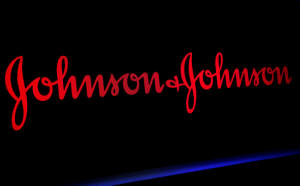J&J secures dismissal of whistleblower case over misuse of confidential
info
 Send a link to a friend
Send a link to a friend
 [June 02, 2023]
By Brendan Pierson [June 02, 2023]
By Brendan Pierson
(Reuters) - A federal appeals court, in a decision unsealed Wednesday,
upheld the dismissal of a whistleblower lawsuit against Johnson &
Johnson as a sanction for the plaintiffs' misuse of confidential records
they obtained through related litigation.
The lawsuit, which accused J&J's DePuy Orthopaedics unit of defrauding
the federal government by marketing defective hip implants, was
dismissed in December 2021.
J&J has denied wrongdoing.
U.S. Magistrate Judge Page Kelley in Boston found at the time that the
plaintiffs, two British orthopedic surgeons who served as expert
witnesses in mass tort litigation over the hip implants, violated court
orders by using material from that litigation in their whistleblower
lawsuit.
A unanimous three-judge panel of the 1st U.S. Circuit Court of Appeals
ruled that Kelley's decision was justified in light of evidence that the
plaintiffs, Antoni Nargol and David Langton, wrongly used the
confidential information and tried to cover their tracks. The
information was shielded by a protective order in the mass tort
litigation meant to prevent disclosure of J&J's trade secrets.
"We accordingly find that the district court did not abuse its
discretion in finding that (plaintiffs) had, once again, violated the
protective orders and in imposing the weighty sanction of dismissal with
prejudice," Circuit Judge Lara Montecalvo wrote for the panel.
Montecalvo was joined by Chief Judge David Barron and Circuit Judge
Kermit Lipez.

Ross Brooks, a lawyer for the plaintiffs, said his clients were
disappointed by the ruling and that "the record plainly shows that Drs. Nargol and Langton offered to prove their good faith compliance with the
relevant court orders."
[to top of second column]
|

The Johnson & Johnson logo is displayed
on a screen on the floor of the New York Stock Exchange (NYSE) in
New York, U.S., May 29, 2019. REUTERS/Brendan McDermid
 J&J did not immediately have a
comment.
J&J's DePuy Orthopaedics Inc unit stopped selling its metal-on-metal
Pinnacle hip implant devices in 2013 after the U.S. Food and Drug
Administration strengthened its regulations on artificial hips.
The devices became the subject of more than 10,000 product liability
lawsuits consolidated before a federal judge in Texas. After being
hit with several adverse jury verdicts, J&J agreed to settle
thousands of cases in 2019 for about $1 billion, though some are
still pending.
Nargol and Langton were serving as expert witnesses for the
plaintiffs in that litigation when they sued DePuy under the federal
False Claims Act in 2012. They claimed the company marketed the
defective hip implant devices to unsuspecting doctors, who were then
reimbursed by government health insurance programs.
The case is United States ex rel Nargol et al v. DePuy Orthopaedics
Inc et al, 1st U.S. Circuit Court of Appeals, No. 22-1047.
For plaintiffs: Ross Brooks of Brooks and Ross Morrison of Yankwitt
For J&J: Adam Tarosky of Nixon Peabody
(Reporting By Brendan Pierson in New York)
[© 2023 Thomson Reuters. All rights
reserved.]This material may not be published,
broadcast, rewritten or redistributed.
Thompson Reuters is solely responsible for this content. |